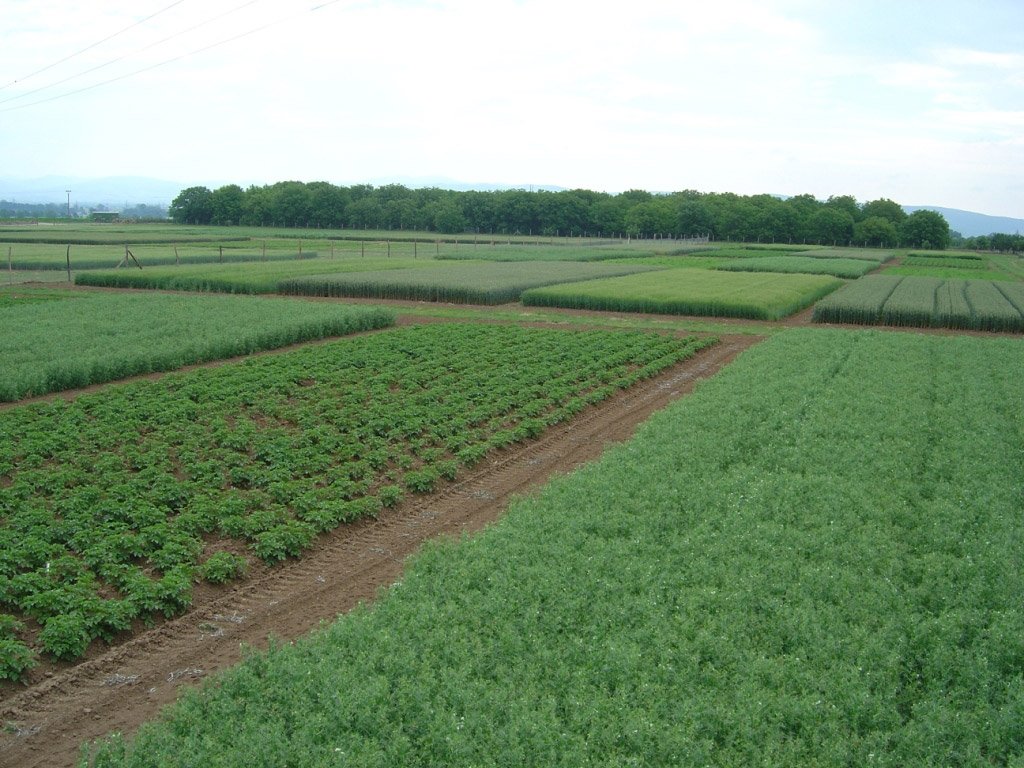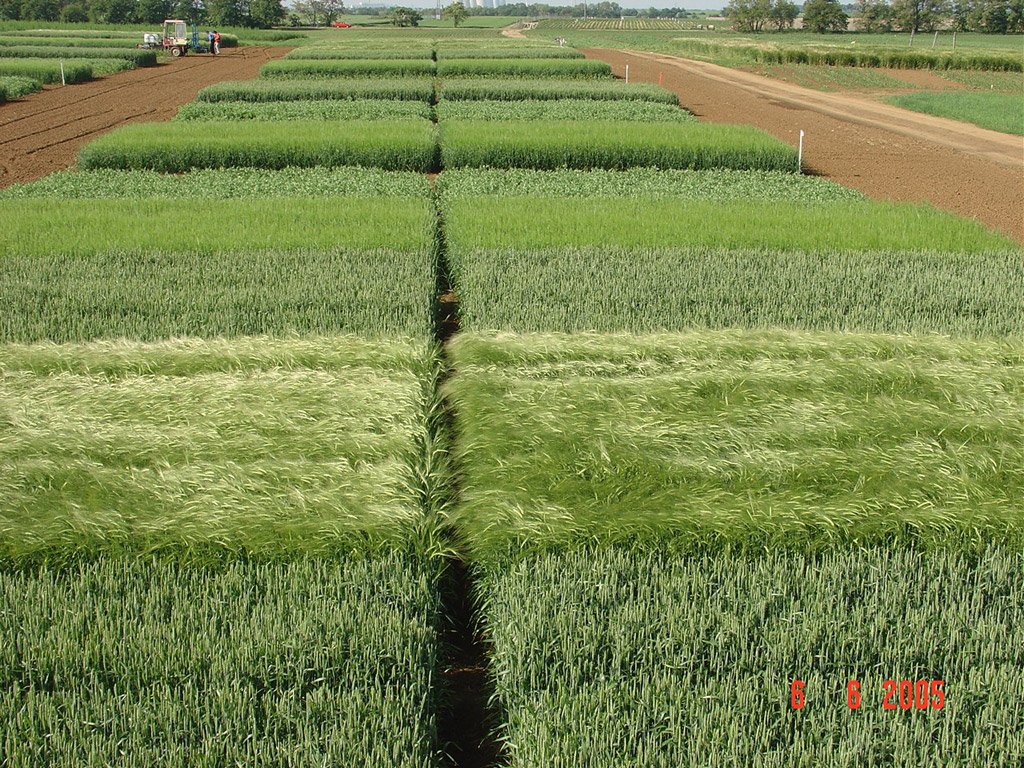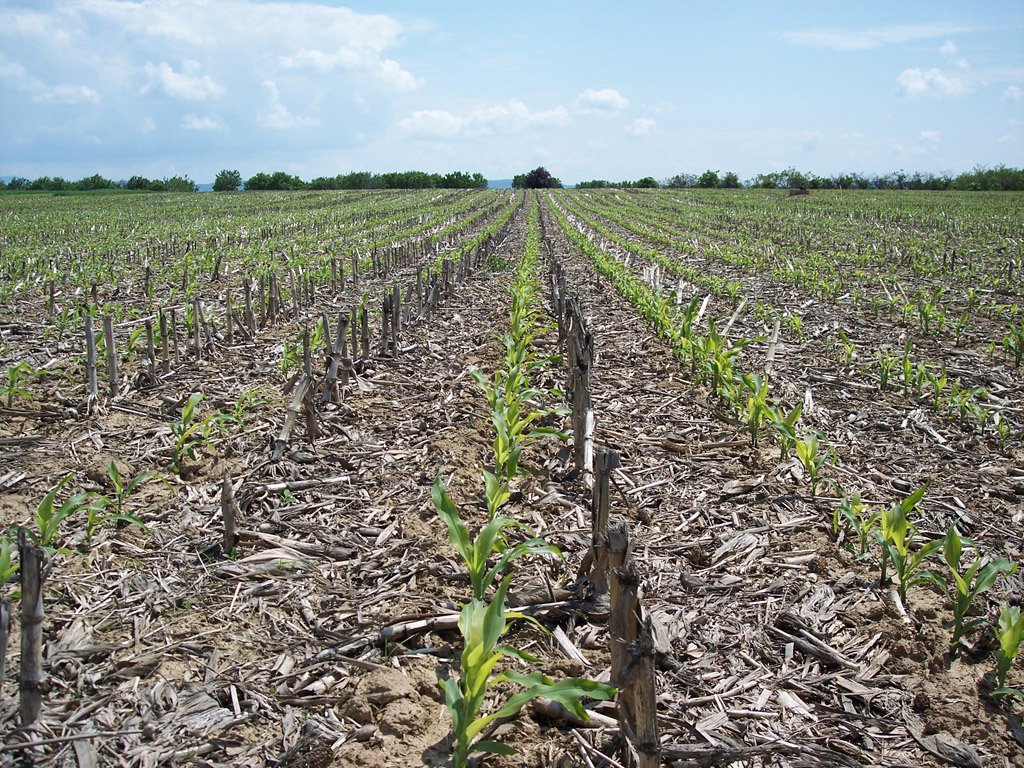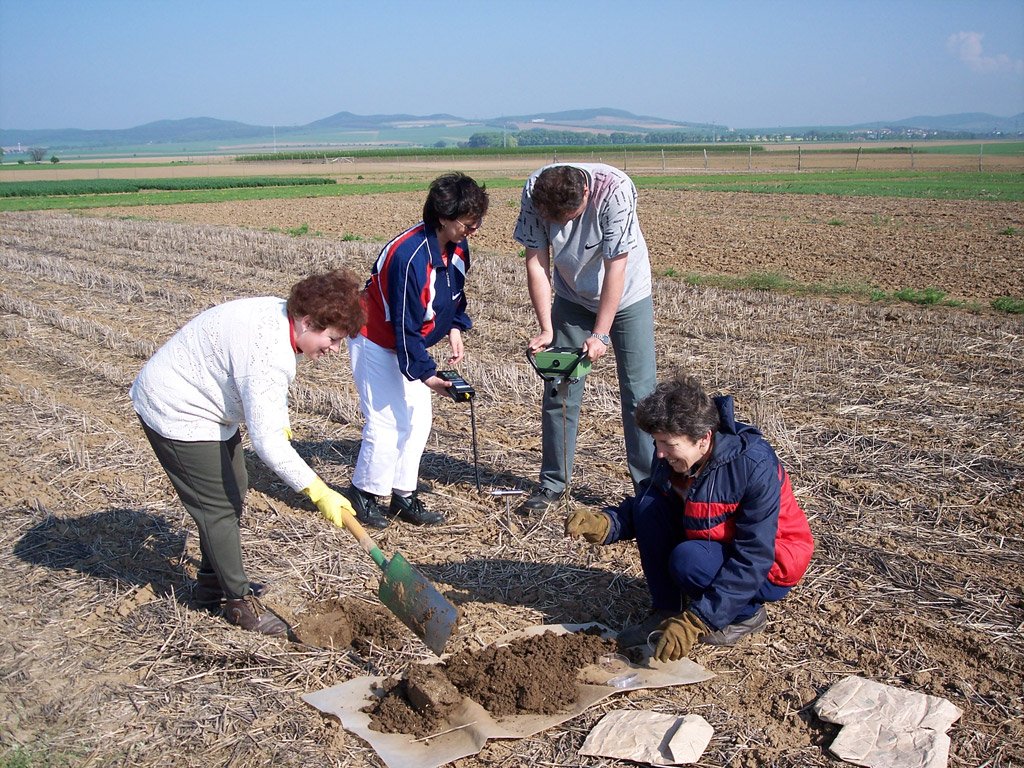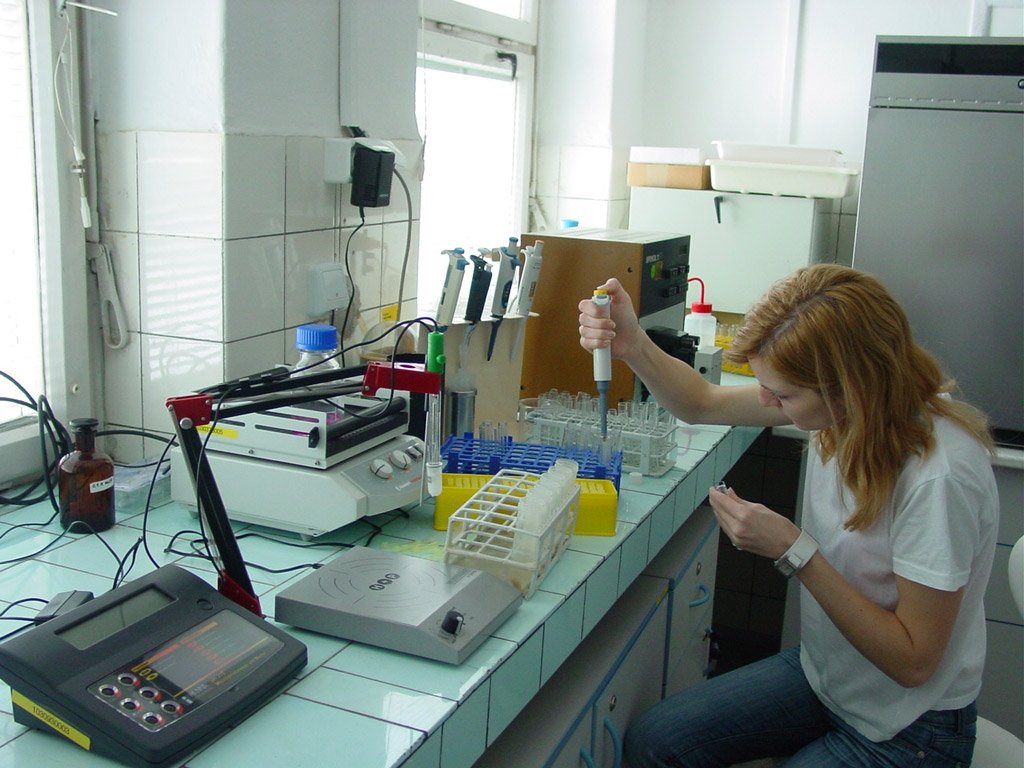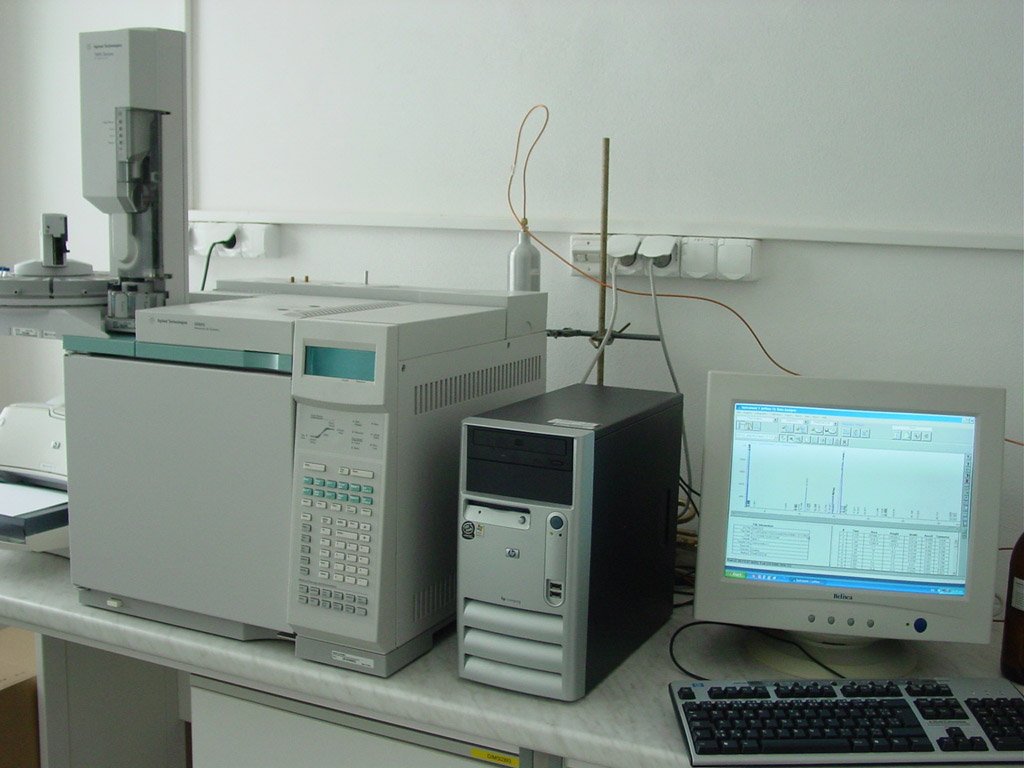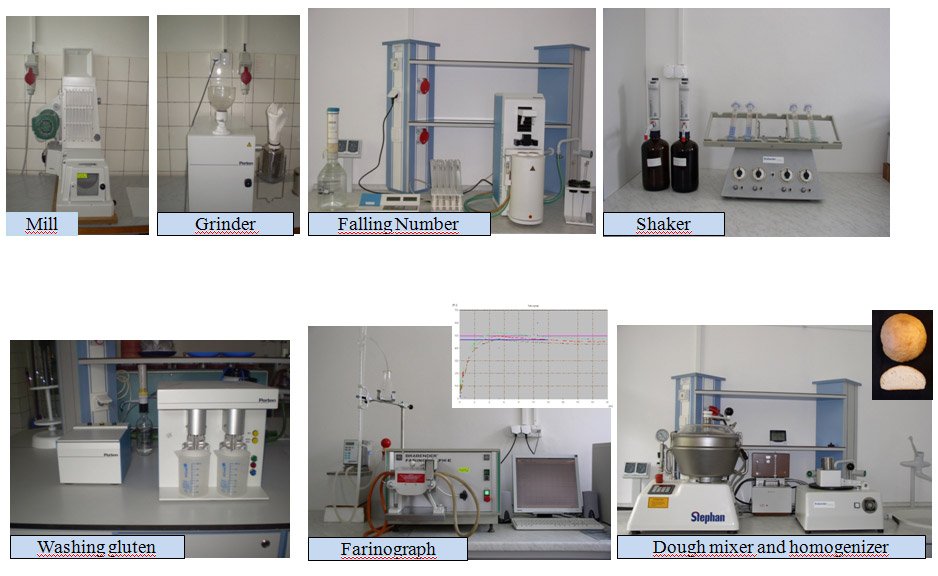The aim of Department of Growing Systems (hereinafter DGS) is the creation of effective growing technologies of field crops, which will be suitable for the present productive, environmental and economic requirements. In accordance with it within technological research researchers of DGS are focused on following issues:
Innovations of crop management practice in:
- winter wheat;
- spring barley;
- winter barley;
- oat;
- silage and grain maize;
- oilseed rape;
- sunflower;
- soybean;
- pea;
- sugar beet;
- potatoes.
Research within crop management is focused on:
- various types and technologies of crop establishment;
- analyses of crop nutrient status - optimalization of nutrient supply and fertilization;
- analyses of crop health - optimalization of pesticide application;
- application of soil conditioners and biostimulators;
- impact of tested factors on crop yield, yield components and yield quality;
- economic effectivity of suggested measures.
Crop rotation and risk elimination related to unbalanced and disturbed crop rotations.
Soil tillage technologies.
Exploitation of conventional technology and various soil conservation technologies.
Importance, benefits and handicaps of individual technologies.
Analysis of technologies impact on:
- soil properties (physical, chemical and biological);
- crop nutrition and nutrient cycles;
- crop health and crop protection;
- yield and yield components;
- economic efficiency of particular technologies.
The transfer of the scientific knowledges is carried out through the field consulting service (especially in the field of plant protection), through lectures, publications and through the organization of seminars and conferences. The scientific researchers take active part in the preparation of the conceptual and legislative materials for Ministry of Agriculture and Rural Development of the Slovak Republic. The activities of the Department of Growing Systems is orientated towards the co-operation with the national and international institutions for the purpose of the creation of the projects.
Consulting and services for practice are realized in following areas:
Individual consulting:
- consultations of problems which appear during the vegetation period;
- analysis of plant material samples (problem determination and its solution).
Field consulting:
- specific solutions of problems in cereals, maize and oil crops;
- determination of plant pathogen or abiotic stress factors with recommendation of appropriate pesticide treatment or another preparation treatment.
Crop management consulting:
- crop establishment, plant nutrition and protection, effectiveness of production;
- crop management of main agricultural crops (winter wheat, spring barley, maize, oilseed rape, sunflower, sugar beet, potatoes, oat, pea, soybean, triticale);
- crop management of energy crops (Miscanthus sinensis, Sida hermaphrodita);
- stabilization and decreasing of crop yield by suitable plant nutrition systems;
- utilization of organic fertilizers based on recycled wastes.
Crop rotation consulting:
- impact of crop rotation on physical and chemical soil properties;
- impact of crop rotation on soil microbial diversity;
- relationships between various crop rotations and grain yield quality;
- impact of crop rotation on weed occurence;
- specialized crop protection against the weeds.
Crop establishment consulting:
- different soil tillage technologies (their importance, advantages, disadvantages and economy);
- soil compaction measurements and recommendations related to elimination of soil compaction.
Performance of field experiments:
- field experiments according to specific requirements of companies, which can be focused on varieties and also preparations development (with pesticides, fertilizers, stimulators) in winter wheat and spring wheat, spring barley and winter barley, maize, oilseed rape, sunflower, soybean and many others;
- registration experiments (based on GEP certificates):
- cereals (fungicides, herbicides, seed treatments, defoliants, desiccants, phytotoxicity assessment - herbicides, defoliants, desiccants);
- oil crops (fungicides, herbicides, seed treatments, defoliants, desiccants, phytotoxicity assessment - herbicides, defoliants, desiccants);
- maize (herbicides, defoliants, desiccants, phytotoxicity assessment - herbicides, defoliants, desiccants);
- field experiments with genetically modified crops (herbicides, defoliants, desiccants, phytotoxicity assessment - herbicides, defoliants, desiccants).
Possibilities for education in form of:
- seminars;
- conferences (also in co-operation with companies from chemical and seed industry);
- field days;
- workshops;
- events for experts and public.
A part of this department are the Laboratory of plant material, soil and water chemical analyses (hereinafter Agrochemical laboratory) and the Wheat quality laboratory too.
The Agrochemical laboratory performs chemical analyses and other services aimed to plant material, soil and water analyses, making use of application possibilities of atomic absorption spectrometry (AAS), Dumas method (determination of nitrogen, carbon and sulphur) and capillary isotachophoresis for needs at present days solved research tasks and with regard to perspective orientation of the institute. The laboratory performs following analyses for the needs of the institute researchers and companies from agricultural practice:
- Analyses of plant material - content of nitrogen, carbon, sulphur (Dumas method); determination of Mg, K (AAS); P (spectrophotometrically); ash and fibre; determination of selected cations and anions by means of isotachophoresis;
- soil - determination of pH in KCl or CaCl2 extracts; total nitrogen; organic matter; oxidable carbon; determination of P, K, Ca, Mg (measured by AAS in Mehlich II, Mehlich III or 0.01 M CaCl2 extracts); ammonium nitrogen; nitrate nitrogen, sulphates and phosphates by means of isotachophoresis; dry matter.
- water - determination of total nitrogen and nitrate content.
The Agrochemical laboratory is focused on a task of biologically active and functional parts of plants (cereals, oil crops) with added value in nutrition and health too. It deals with the determination of total dietary fibre content in primary food sources enzymatically by the method of the total dietary fibre assay procedure (Megazyme International Ireland Limited) and the determination of (1-3)(1-4)-β-D-glucan by the method of mixed-linkage Beta-glucan assay procedure (Megazyme International Ireland Limited), respectively. The Laboratory performs also analysis of the content of (1-3)-β-glucans, (1-3)(1-6)-β-glucan, and α-glucan in algae, fungi, and yeasts using the mushroom and yeast beta-glucan assay procedure (Megazyme International Ireland Limited). The research activities aim at the application of gas and thin-layer chromatography in research of lipids and their components in cereals and oil crops. Also the high-performance liquid chromatography for the purpose of studying the biologically active compounds (phytochemicals) in winter wheat is used.
The Wheat quality laboratory executes analyses of wheat for researchers in Institute and for persons concerned in practice. In laboratory are determined following parameters according standard methods: volume weight (STN 46 1011-5), moisture content (STN ISO 712), ash yield (STN ISO 2171), wet gluten content (STN 46 1011-9), gluten index (ICC No. 155), Zeleny sedimentation index (STN ISO 5529), falling number (STN ISO 3093), farinograph evaluation (ICC No. 115/1), baking testing (PN-01/07).

